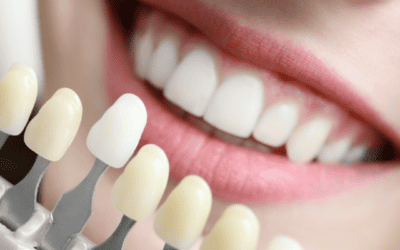It’s National Diabetes Week (14th – 20th July 2019) and it’s time to raise the awareness of the complications of diabetes, especially when it comes to your mouth.
Diabetes affects almost 1.5 million people in Australia, which is 7.6% of the population. In fact, Australia has one of the highest rates of type 1 diabetes in the world. Each year 640 children and adults are admitted to hospital because the early symptoms of type 1 diabetes are not recognised (1). Type 1 diabetes can be fatal if not diagnosed in time. There are almost half a million people who are living with type 2 diabetes but don’t know it (1).
The first signs and symptoms of diabetes can start in the mouth…
This is why regular dental examinations are so crucial. Early diagnosis of any disease means a more favourable outcome. The most common problems in the mouth of people with diabetes are:
- gum disease
- gum abscesses/infections
- tooth decay
- fungal infections such as thrush
- mouth ulcers
- taste disturbances
- a dry, burning mouth (low saliva levels).
If you have diabetes, having blood glucose levels above the target range increases the risk of dental problems.
Gum Disease
Gum disease is more common and more severe in people with poorly controlled blood glucose levels. In fact, you are 2 to 3 times more likely to have gum disease if you have high blood glucose levels. This is due to a lower resistance to infection and a reduced healing capacity.
It is important to look after your oral health and control your blood glucose levels to prevent dental disease. Treating gum disease can actually improve blood glucose levels in people living with diabetes, and people with optimal blood glucose levels respond very well to dental treatment.

Gingivitis – redness and bleeding are the first
signs of gum disease.
Read more about gum disease and general health.
Gum disease also puts you at risk of other diseases, including Alzheimer’s Disease, which we covered in a previous blog.
Tooth Decay
When your blood glucose levels are high, you will have more glucose in your saliva and a dry mouth. A dry mouth alone increases your risk of tooth decay, but pair this with increased glucose in your saliva (glucose is a food source of plaque bacteria which cause decay), and your risk of tooth decay will sky-rocket. These plaque bacteria are also responsible for gum disease, which can lead to sore swollen gums, but also can progress silently, without you knowing about it, until the teeth become loose.
Infections
High blood glucose levels can cause bacteria to grow, allowing infections to develop quickly and making them more difficult to treat. Even if you don’t have any teeth and wear dentures, you can still have gum infections.
Fungal mouth infections such as thrush appear as white, and sometimes red patches in the mouth. These patches can get sore and turn into ulcers. It is important to get any white/red patches and any mouth ulcers that last longer than 10 days checked by your dentist.
Well-controlled blood glucose levels help to avoid thrush. If you wear dentures, make sure to take them out at night to help the gums get a rest and prevent infections. Smoking also increases the risk of infections.

Advanced gum disease leading to infection
and loose teeth.
How do my teeth affect diabetes?
Those with poor oral health are more likely to have poor general health. A healthy mouth can actually help with controlling blood sugar levels. Studies show that gum disease (which is an infection, with inflammation) can actually contribute to higher blood glucose levels.
Make sure to get your gum health checked regularly, along with professional treatments by your dentist. Great home care with regular brushing and flossing will reduce infection and can help to improve blood glucose levels
How do I keep my mouth healthy?
There are several things you can do to reduce dental problems.
- Keep blood glucose levels within your target range. Talk to your doctor and diabetes educator about how to achieve this.
- Brush and floss your teeth every day. Brush your teeth twice a day with fluoride toothpaste and a soft toothbrush.
- See your dentist at least once a year. Tell your dentist you have diabetes and what medications you are taking.
- Don’t smoke. If you do smoke, try and quit. If you feel you can’t give up smoking on your own, ask for help – talk to your doctor or call the Quitline on 137 848.
- Make healthy food and drink choices. Enjoy a wide variety of nutritious foods and limit foods and drinks that are high in added sugars. Choose water as the best everyday drink. (3)

Make sure to get your regular check-ups
and cleans.
Sources:
(1) Diabetes Queensland
(2) NDSS (February 2016) National Diabetes Map
(3) NDSS



